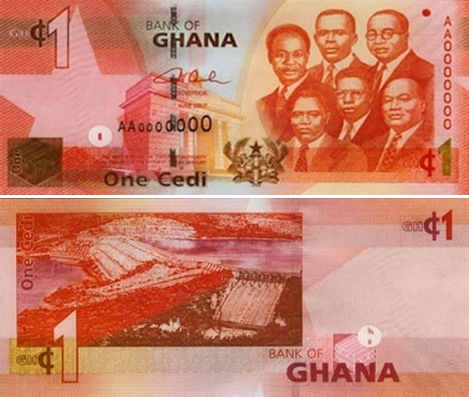The Cedi's Strength: An Unforeseen Pressure Point Exposed?
In a dramatic turn of events, Ghana's cedi has shown remarkable strength against major currencies in recent months. While a stable or strengthening currency is typically good news for policymakers, businesses, and consumers, the cedi's unexpected resilience has begun to reveal an unexpected pressure point in the Ghanaian economy.
Traditionally, a robust cedi translates into cheaper import bills, cheaper inflation, and greater purchasing power for citizens. Following years of volatility and devaluation, recent good fortune has been universally embraced. Experts attributed this performance to a mix of factors: tighter fiscal policy, improved foreign exchange inflows from cocoa and gold exports, improved Bank of Ghana interventions, and a relatively subdued demand for foreign exchange amid sluggish domestic economic expansion.
But with a stronger cedi, negative impacts are already being experienced. The economy of Ghana relies heavily on the exportation of raw materials such as gold, cocoa, and oil. A strong currency makes them more expensive to foreign buyers, hence reducing the competitiveness of Ghana in the global market. Exporters are already experiencing the impact, with others citing revenues declining even as global demand for their goods remains unchanged. This is a significant threat to Ghana's balance of trade, which would expand if exports remain flat while imports rise, attracted by the cheaper dollar price.
Besides, remittances — a significant foreign exchange earner and a household lifeline in Ghana — could also be adversely impacted. The hard cedi weakens the purchasing power of remittances sent from abroad. To many households that rely on these remittances for medical care, education, and daily maintenance, the depreciation will strain household budgets and aggregate consumption, with spillovers across the economy.
The local business and tourist industries have a paradox that the private sector faces. While a stronger cedi lowers the cost of imported services, raw materials, and machinery, it increases the cost of foreign tourists to come to Ghana and raises the cost base for firms that compete with imported goods. The overall effect could be a discouragement of foreign tourists and a weakening of domestic industries already struggling from post-pandemic recovery issues.
A second source of stress is government debt servicing. Ghana's foreign-denominated debt is high. A rising cedi, in theory, would lower the real cost of paying back that debt in domestic currency terms. But that relief would be short-lived if export income drops and foreign reserves are depleted faster than anticipated, forcing the government to borrow more or refinance on bad terms.
Most significantly, perhaps, the current appreciation may prove unsustainable without continuing fiscal discipline, tight monetary policy, and continued foreign currency inflows. Should investors and market participants view the strength as policy-driven or transient rather than based on strong fundamentals, any shock — e.g., a decline in commodity prices or political uncertainty — would result in a sharp reversal, subjecting the economy to dangers.
In this fragile environment, the Bank of Ghana has a tightrope to walk. It must support the stability of the cedi without allowing it to appreciate to levels that damage exports and remittance inflows. Measures such as selective forex market interventions, policy rate adjustments, and increased capital flow monitoring could help to curb volatility without undermining confidence.
Ultimately, as a healthy cedi is to be welcomed, it is a double-edged sword that requires management with care. Policymakers must watch carefully for the subtle impact on the broad economy. Export competitiveness, domestic welfare, and fiscal sustainability all hang in the balance. Ghana's experience serves as a caution that even positive trends must be navigated with care and foresight in an era of globalization.
The resilience of the cedi may have taken people by surprise, but it is Ghana's response to the concealed strains it exposes that will prove the test of whether this is a stepping stone to lasting economic security — or an early indicator of future fragilities.



No comments yet
Be the first to share your thoughts!